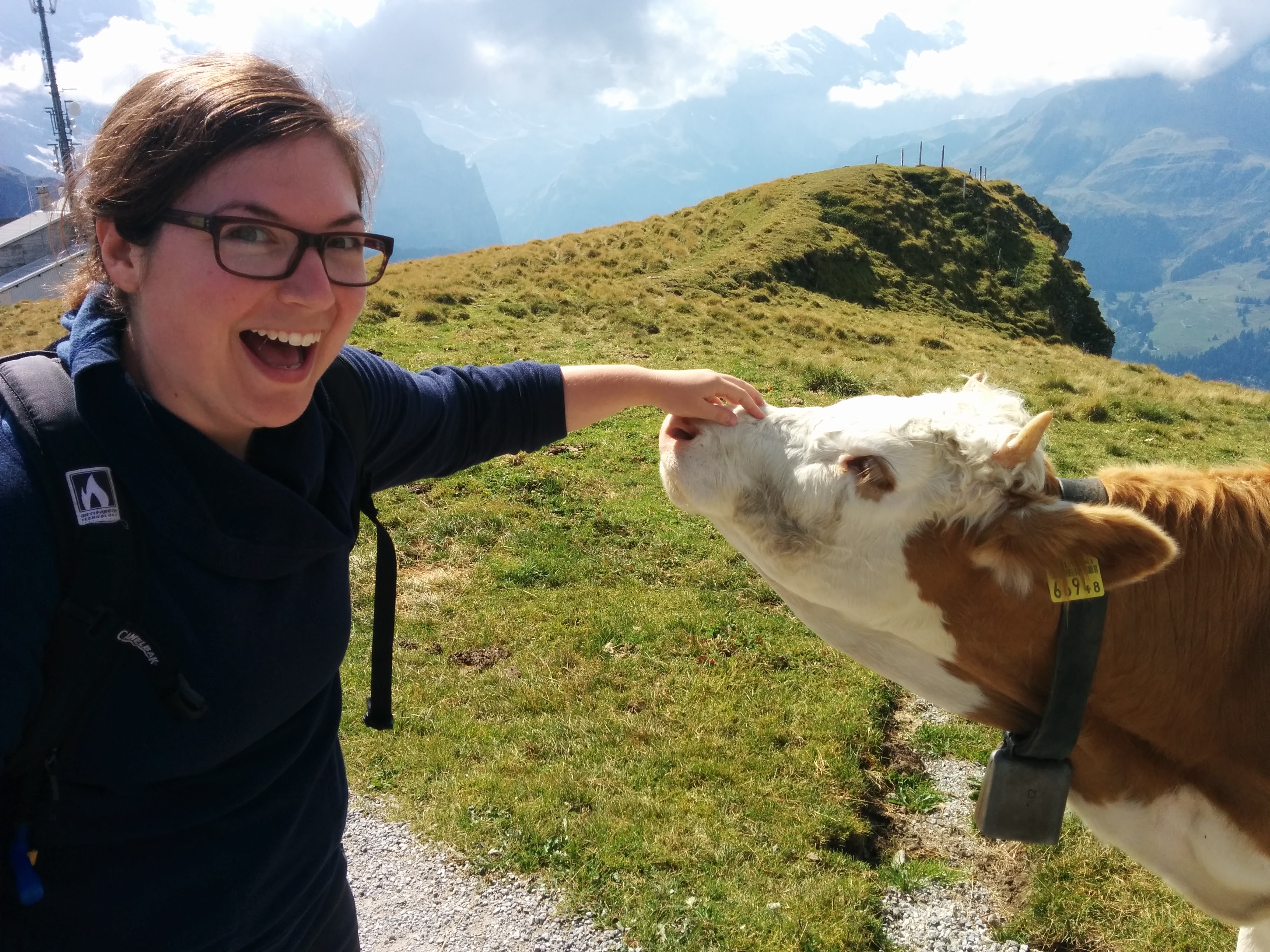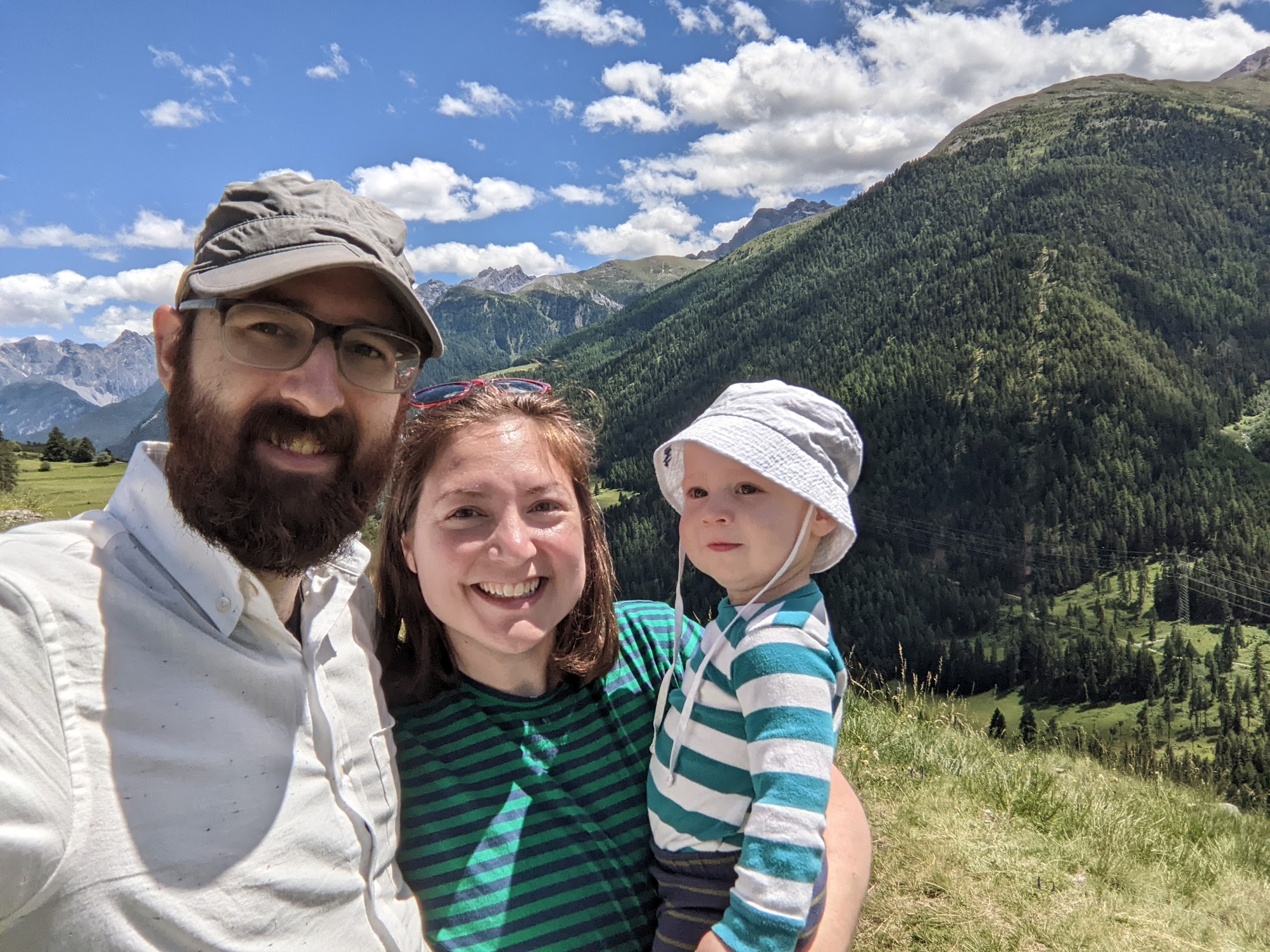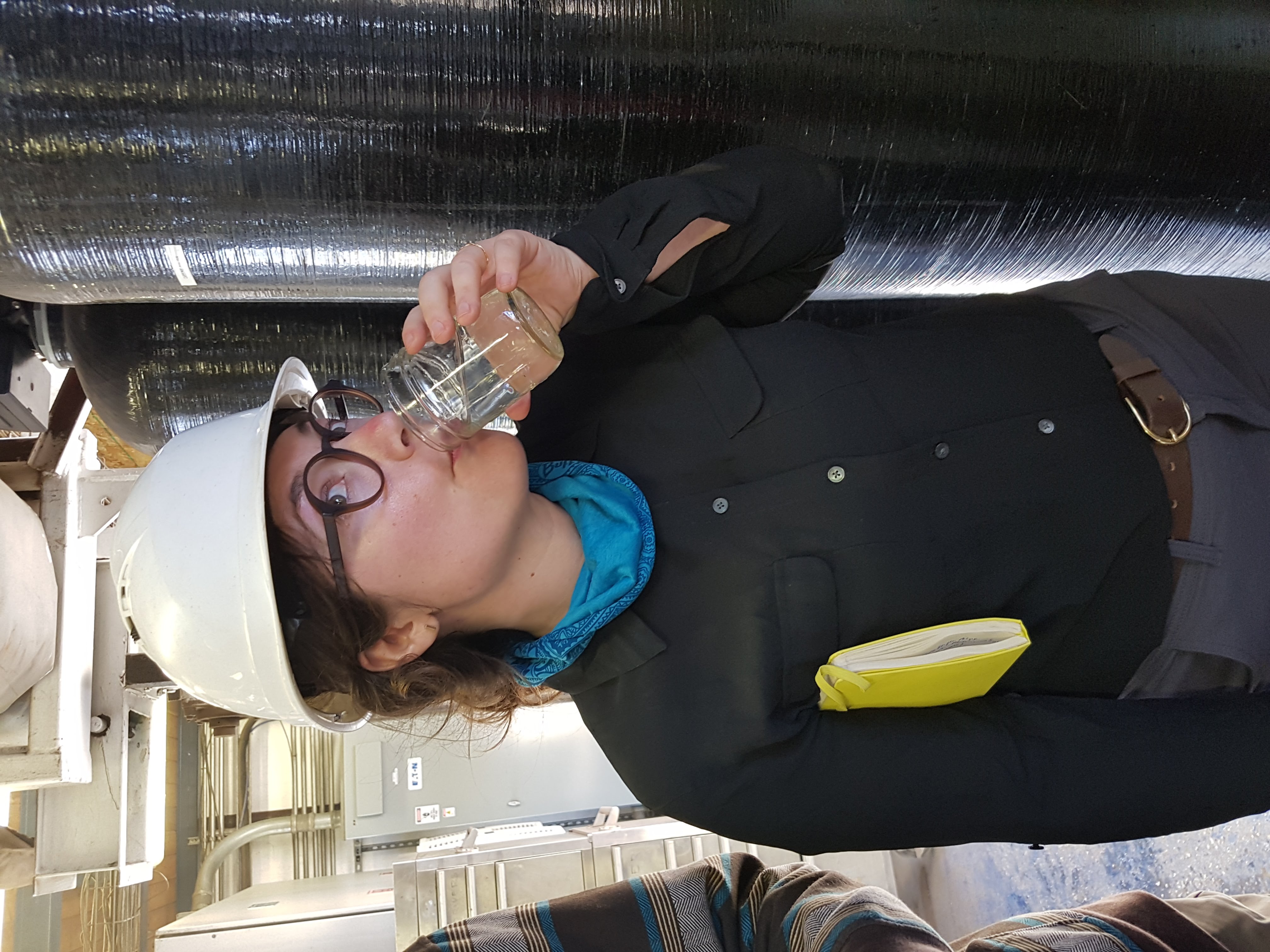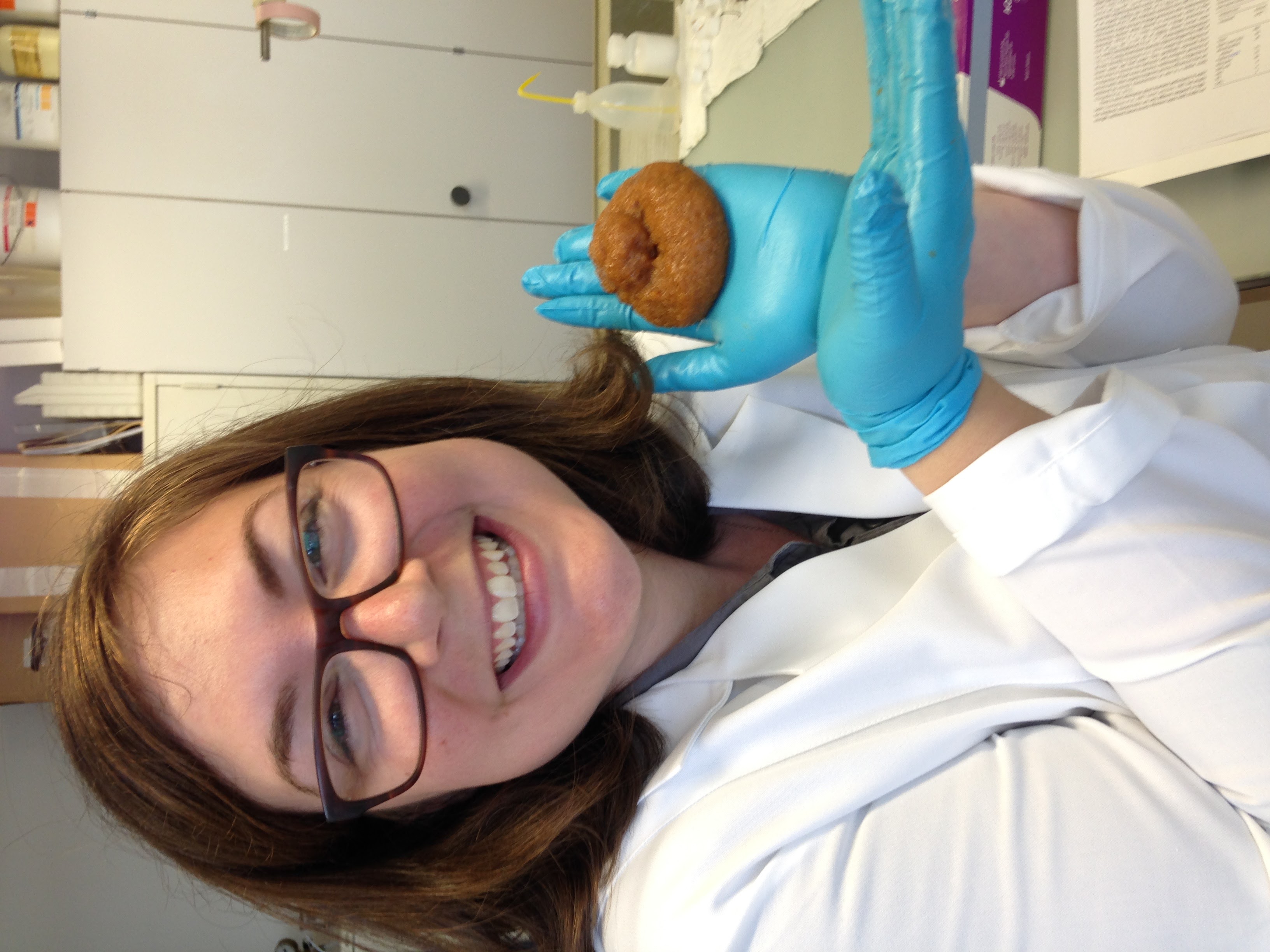“I am really excited about wastewater, excreta, and faecal sludge management!” -BJ Ward, Class of 2009, LinkedIn
When we came across BJ Ward’s Linkedin biography, we knew we had to reach out for an alumni spotlight! Ward was in the Park Scholarships Class of 2009 and graduated from NC State with a B.S. in chemical engineering and a minor in German. She received an M.S. in environmental engineering from University of Colorado Boulder and a Ph.D. in environmental engineering at ETH Zurich in Zurich, Switzerland. Ward is currently a water/wastewater designer at an engineering consulting firm in Virginia Beach.
Ward talked to us about her “long and winding” career path, how she paired her love for research with a want to create a positive impact on her community and how the Park Scholarships program helped guide her to give back.
What were some of the highlights of your experience as a student at NC State and as a Park Scholar?
One highlight was participating in a Park Enrichment Grant (PEG). I applied for a PEG to take a course on ecology and biodiversity in the Galapagos and spent spring break on a boat learning about indigenous flora and fauna. We snorkeled with sea lions and hiked through volcanic tunnels. It was incredible.
While at NC State and in the Park Scholarships program, I met my closest friends. My favorite moments from college are eating fancy omelets in Clark dining hall on weekends, driving to Wilmington to go camping at the beach and staying up late in EB1 working on problem sets.
What were you involved during your four years in the Park Scholarships program?
I conducted undergraduate research at the NC Solar Center (now it is called the NC Clean Energy Technology Center). There I worked with Dr. Alex Hobbs on environmental policy (biofuels) and worked at the NCSU biodiesel pilot plant. I was also a part of the German honor society/German club, and minored in German.
I went on a Summer research trip abroad (Fraunhofer Institute for Solar Energy Systems, Freiburg, Germany) and studied abroad in Vienna, Austria, and Lille, France. I also went on an Alternative Spring Break with Habitat for Humanity. Of course, I did a lot of engineering homework!

How did the Park Scholarships program contribute to professional choices and/or opportunities?
Being a part of the Park Scholarships program definitely contributed to my career choices in a few ways. Park helped instill in me a need to give back, a want to have a positive impact through my career. This motivated me to look into environmental engineering for the protection of public health and the environment.
Opportunities like studying and researching abroad made me realize how much I loved traveling and learning new languages. These opportunities made me confident enough to later on move to Switzerland for my Ph.D.
Let’s talk about your Linkedin bio! What influenced your decision to pursue environmental engineering and how did you end up where you are today?
It was long and winding! When I left NC State, it was for a chemical engineering graduate program at University of Colorado Boulder. Although I loved doing research, I was frustrated that my research was so far removed from application (and honestly I was struggling with the math coursework!). I got involved with Engineers Without Borders at CU Boulder and made the switch to doing my masters in environmental engineering with a certificate in engineering for developing communities through CU Boulder’s Mortenson Center for Global Engineering & Resilience. I did my masters research with CU’s Bill & Melinda Gates Foundation Reinvent the Toilet Challenge team, which was developing a completely off-grid toilet that sanitized poop and pee and generated beneficial byproducts for reuse. That sent me down my sanitation path!

After my master’s program, I did an internship in Kumasi, Ghana with Pivot, a company trying to make fuel as a byproduct of treating waste from onsite sanitation systems (pit latrines and septic tanks). Most cities in Sub-Saharan Africa rely mostly on onsite systems and have limited sewer and wastewater treatment. Living in a big city – with extremely limited, insufficient sanitation infrastructure, walking to work every day past open ditches full of excreta, observing the toll that takes on public health and environmental health – made it clear to me how wide the gap is between the need for adequate sanitation and reality.
In Ghana, I got familiar with the research of my future Ph.D. advisor, Dr. Linda Strande and I convinced my then-boyfriend-now-husband to move to Zurich, Switzerland, so that I could start my Ph.D. research with her at Eawag (Swiss Federal Institute of Aquatic Science and Technology) and ETH Zurich. My research focused on understanding and optimizing treatment of wastewater from onsite systems for improved global sanitation. I spent six years at Eawag as a project manager and a Ph.D. student, splitting my research between the lab in Switzerland and several cities in sub-Saharan Africa. During my Ph.D., I realized that I loved doing applied research that has a direct impact.
Now, I am working as a water/wastewater designer at an engineering consulting firm in Virginia Beach. I work on designing treatment and resource recovery processes for wastewater and drinking water treatment, including solids dewatering and biogas upgrading into renewable natural gas. I have even gotten to help with the design of improvements to O.B. Curtis Water Treatment Plant in Jackson, Mississippi. It felt great to play a small part in providing safe, reliable drinking water to a community experiencing a water crisis.

Which professional experiences have been especially valuable to your overall career development?
I have benefited enormously from relationships with mentors. This is something that the Park program played a huge part in shaping for me. It’s where I learned how important mentors are and how to effectively engage with and seek out mentorship.
Also, as a researcher, attending conferences and presenting my research and engaging with other scientists and engineers is probably the most beneficial and enriching professional experience for career development. It’s a great way to get to know interesting people to collaborate with in the future.
What are your goals related to your career?
I am currently enjoying rounding out my engineering knowhow in my wastewater design role, hoping that it will help me to become a more well-rounded engineer to be able to understand how these treatment systems are really designed and operated. But my favorite thing is still research and I am always looking for ways to do more of it.
What advice would you give a current Park Scholar?
Take advantage of the resources you have at your disposal, as much as you can! And follow your passions and get involved with the things that you care about. If you do this, opportunities for the future will present themselves. It never hurts to introduce yourself and ask if there’s an open position to apply for.
